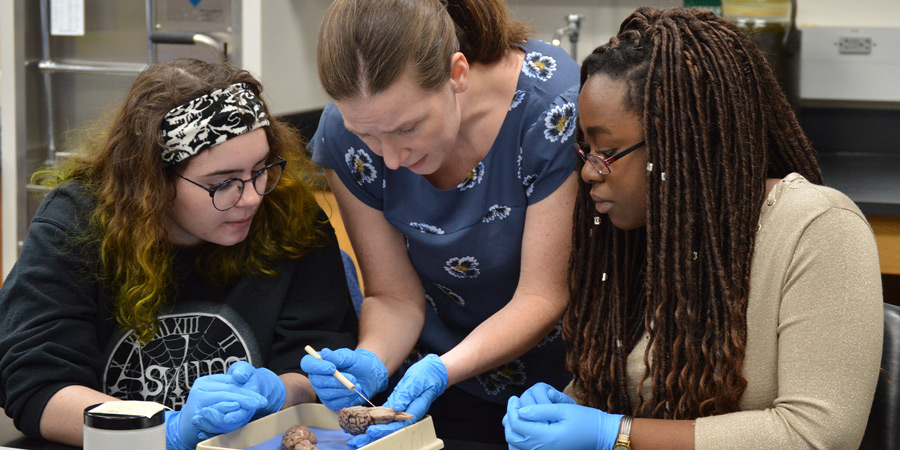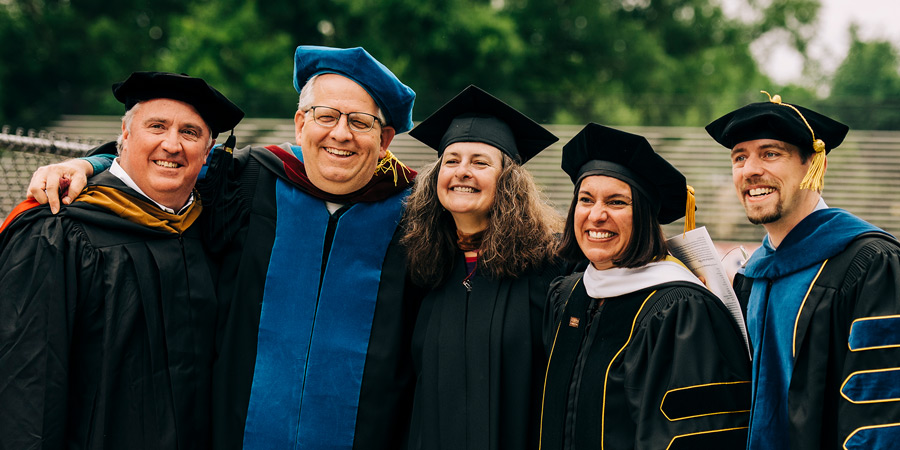Academics at Hanover:
As you study human behavior and the mind with Hanover’s accomplished, widely published faculty, you’ll learn that all of life is a process of inquiry. Unlike any other school, you’ll design and conduct your own research projects at least four times in the course of your studies.
DEPARTMENT WEBSITE
In fact, all seniors present their projects at an undergraduate research conference. For hands-on experience, maybe you’ll conduct low-level therapy in controlled situations on campus. Or maybe you’ll intern with a local psychiatric hospital or community agency. As a psychology student at Hanover, you will have a better understanding of how and why people act, think and feel the way they do.
STUDYING HUMAN BEHAVIOR
With psychology faculty guidance, you can investigate the subjects of most interest to you through directed research projects. Past students have investigated subjects such as:
- How people respond to people with attractive or unattractive faces
- The most effective ways to learn
- The influence of hand-washing signs on behavior
- First generation versus non-first-generation college students
- The perception of regional accents
- Body esteem and sexual self-confidence
- Homophobic attitudes
What do psychology majors study?
- Basic psychology
- Research design and statistics
- Neuropsychology
- Other topics that interest you, from personality theory to the psychology of gender to behavior disorders, to trauma and loss, and to human sexuality
Previous graduates’ career and professional placements have included:
- Assistant Professor, Psychology Department, Purdue University
- Clinical Psychologist, Virginia
- School Psychologist, Carmel School System
- Past-President, Rider University
- Naturalist, Indiana DNR
Graduate school placements have included:
- University of Michigan
- Indiana University
- University of Illinois
- Florida State University
- Northwestern University
- Oregon Health Science University
- Washington University
“Each Hanover professor pushed me to think more deeply about the issues we studied and to think about those issues in the broader context of human experience. I am grateful that they required us to perform our own independent research, and the skills I acquired through that experience will be very useful in graduate school.”
Elizabeth Tuck ’07
COURSES
Faculty
 Skip Dine Young
Professor of Psychology/Director of Outcomes/Coordinator of Institutional Research
812-866-7319
youngst@hanover.edu
Skip Dine Young
Professor of Psychology/Director of Outcomes/Coordinator of Institutional Research
812-866-7319
youngst@hanover.edu







